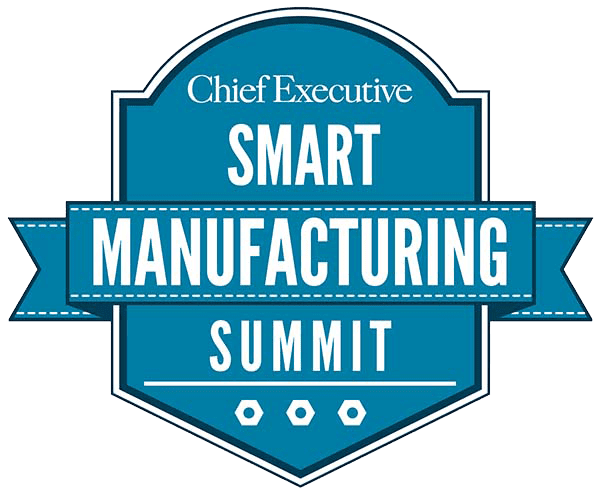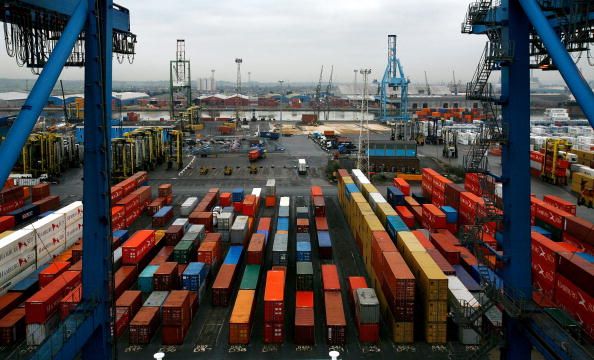 Attend Chief Executive’s 5th Annual Smart Manufacturing Summit May 15-17 in Seattle, Washington. Co-hosted by Boeing, join peer CEOs to discuss the key strategies, tactics and opportunities in 21st-century manufacturing. Registration includes insider tours of Boeing’s largest facility and Microsoft. Click here to save $200 on your registration.
Attend Chief Executive’s 5th Annual Smart Manufacturing Summit May 15-17 in Seattle, Washington. Co-hosted by Boeing, join peer CEOs to discuss the key strategies, tactics and opportunities in 21st-century manufacturing. Registration includes insider tours of Boeing’s largest facility and Microsoft. Click here to save $200 on your registration.
 Data has indicated a growing resurgence in American manufacturing over the past few years. More companies are starting new facilities or expanding operations at home, and taking pride in the fact their products are made in America.
Data has indicated a growing resurgence in American manufacturing over the past few years. More companies are starting new facilities or expanding operations at home, and taking pride in the fact their products are made in America.
Yet many manufacturers still rely on imported raw materials. When factoring in a whole supply chain from the most basic raw materials, the lines between what is made in the United States and merely what is more likely assembled here can grow murky.
Many of the highest-paying jobs, and those most important to the economy, rely on imported materials. Manufacturing sub-sectors like computers and electronics use a high volume of imported components.
“This is taxing our most competitive highest value added sectors at the expense of our most backward sectors,” said Petersen Institute President Adam Posen. Items most important to the U.S. economy and manufacturing that rely heavily on imports include automobiles and parts, computers and electronics, and petroleum and coal products, Posen said.
Susan Helper, an economist at the Weatherhead School of Management at Case Western Reserve University in Cleveland said that immediately trying to move the supply chain back home would cause a lot of disruption. “The stuff that China now makes and the way they make it, it’s not trivial to replicate that,” Helper said.
J. Bradford Jensen, a professor at Georgetown University’s McDonough School of Business, said that more than 90% of the country’s exporters also are importers. While it’s less of a piece of the U.S. economy, few apparel manufacturers could survive without imports.
Doug Williams, CEO of W Diamond Group, which holds the manufacturing, sales and marketing license for suit-maker Hart Schaffner Marx said that a tax on imported materials would make the company’s costs go “through the roof.”
Rand Corporation agrees. It’s latest report indicated that U.S. manufacturers’ high use of imported materials could present a great risk to the industry overall. While the U.S. is a leading global materials producer, it still imports a large number of materials for manufacturing. Rand said that this makes U.S. manufacturers vulnerable to export restrictions, two-tier pricing, and issues that can hinder the international competitiveness of U.S. manufacturing.
Rand specifically points to China, which produces more than 50% of 11 materials critical to U.S. manufacturing. China now produces 80% of the world’s tungsten and 90% of its antimony. Tungsten is used in products ranging from medical devices and light bulbs to jewelry, while antimony is used in everything from batteries and cable sheathing to paints and glass.
Yet a number of manufacturers that rely on imported materials still support initiatives to encourage more sourcing at home. Twenty-five companies, including Caterpillar, Boeing, Dow Chemical, GE and Johnson & Johnson, recently formed the American Made Coalition to support eliminating The Made in America tax, which they said unfairly penalizes U.S.-made products.
The coalition said ending the “Made in America” tax would create 1.7 million jobs, increase wages by 8% nationwide, and produce $4,600 in average savings per family. It downplayed the impact on importers and said that “under the new system, the dollar should appreciate relative to the currencies of our trading partners. A stronger dollar would make imports cheaper, offsetting the increase in taxes paid.”
You might also like:
The Top 10 States for Manufacturing
How Technology can Foster Connected Manufacturing
6 Big Issues that Will Disrupt Manufacturing
What Manufacturing CEOs Can Learn on the Factory Floor

Chief Executive Group exists to improve the performance of U.S. CEOs, senior executives and public-company directors, helping you grow your companies, build your communities and strengthen society. Learn more at chiefexecutivegroup.com.
0

1:00 - 5:00 pm
Over 70% of Executives Surveyed Agree: Many Strategic Planning Efforts Lack Systematic Approach Tips for Enhancing Your Strategic Planning Process
Executives expressed frustration with their current strategic planning process. Issues include:
Steve Rutan and Denise Harrison have put together an afternoon workshop that will provide the tools you need to address these concerns. They have worked with hundreds of executives to develop a systematic approach that will enable your team to make better decisions during strategic planning. Steve and Denise will walk you through exercises for prioritizing your lists and steps that will reset and reinvigorate your process. This will be a hands-on workshop that will enable you to think about your business as you use the tools that are being presented. If you are ready for a Strategic Planning tune-up, select this workshop in your registration form. The additional fee of $695 will be added to your total.

2:00 - 5:00 pm
Female leaders face the same issues all leaders do, but they often face additional challenges too. In this peer session, we will facilitate a discussion of best practices and how to overcome common barriers to help women leaders be more effective within and outside their organizations.
Limited space available.

10:30 - 5:00 pm
General’s Retreat at Hermitage Golf Course
Sponsored by UBS
General’s Retreat, built in 1986 with architect Gary Roger Baird, has been voted the “Best Golf Course in Nashville” and is a “must play” when visiting the Nashville, Tennessee area. With the beautiful setting along the Cumberland River, golfers of all capabilities will thoroughly enjoy the golf, scenery and hospitality.
The golf outing fee includes transportation to and from the hotel, greens/cart fees, use of practice facilities, and boxed lunch. The bus will leave the hotel at 10:30 am for a noon shotgun start and return to the hotel after the cocktail reception following the completion of the round.